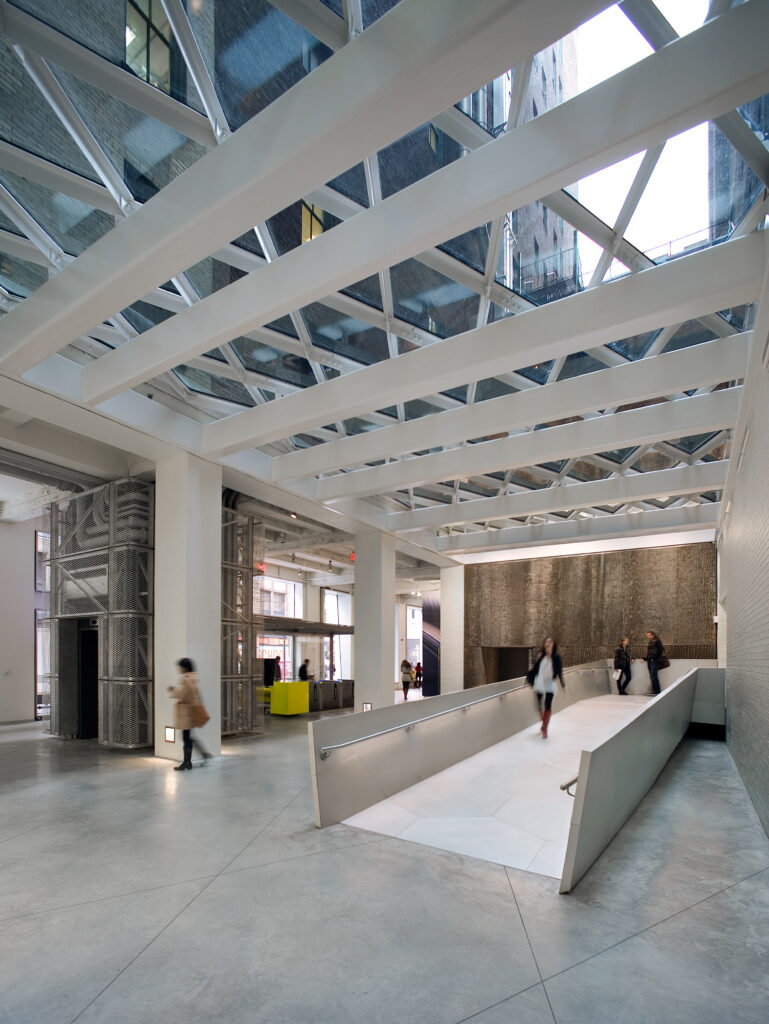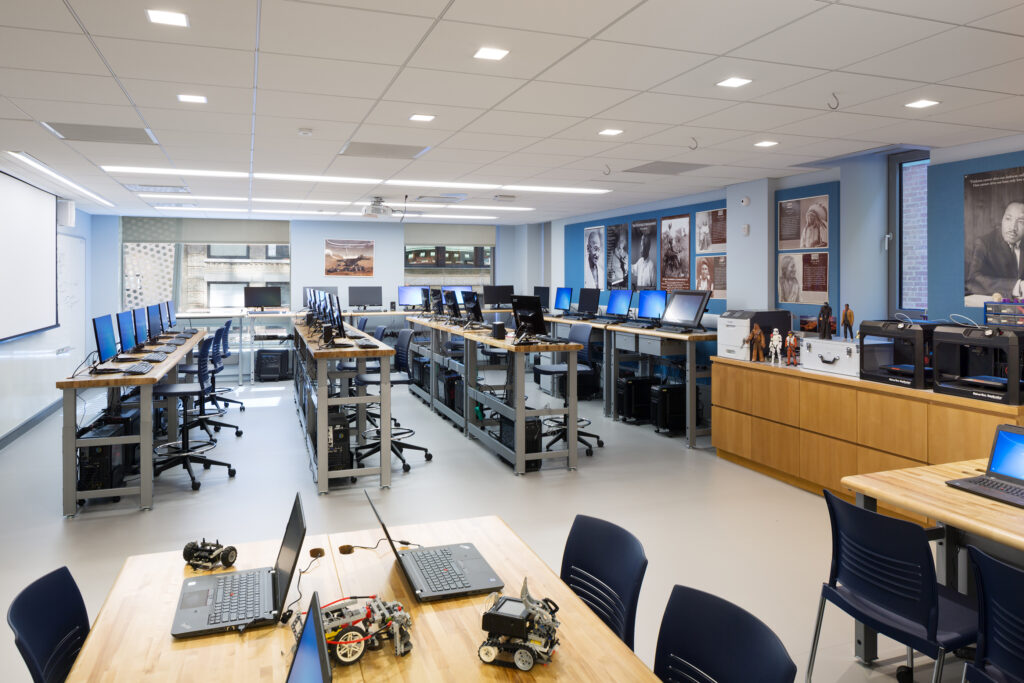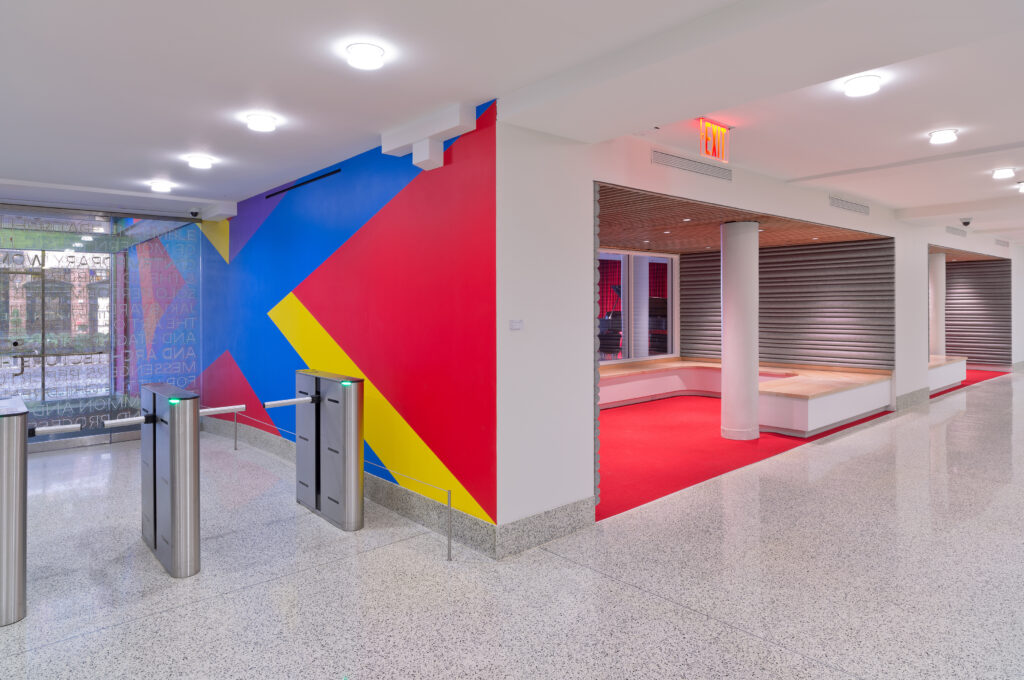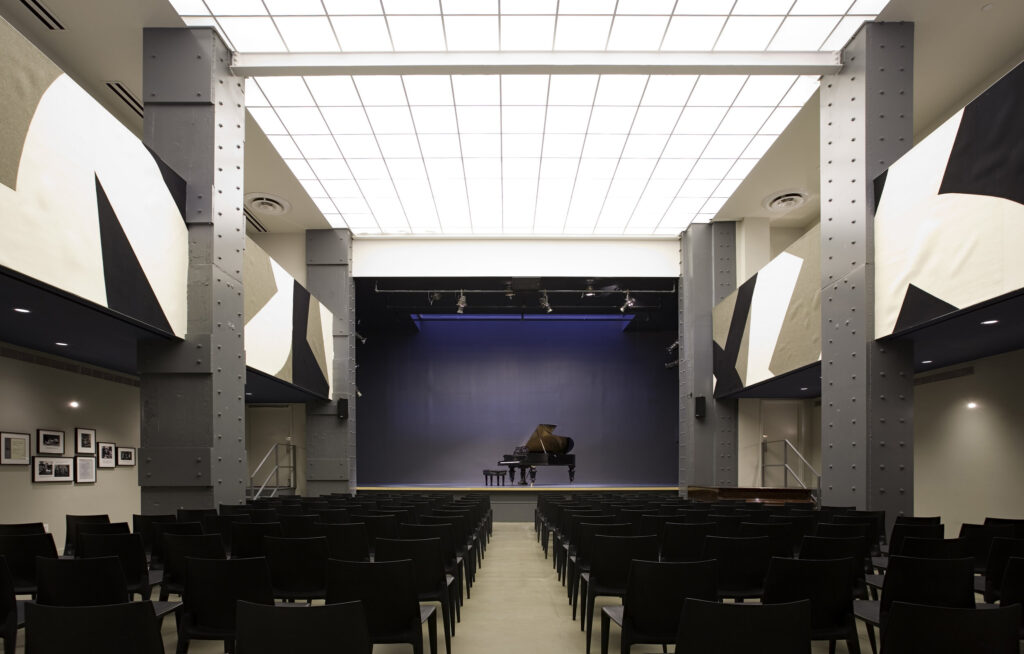In New York City alone, there are approximately 1,000 schools classified as Charter, Private and Higher Education. Each facility faces similar challenges of abiding by the latest codes, incorporating current technology, and providing premier facilities and programs to attract new generations of students. Facility upgrades and construction, from minor alterations to major expansions, are necessary and routine while posing unique challenges due to limitations of the academic calendar. Larger alterations or additions require temporary space or phased workflows to accommodate the student body and staff. For these reasons, summer breaks are often the only time when major construction work can take place. As a firm servicing the New York City Metro Region with vast experience working on projects for this unique clientele, Richter + Ratner is very familiar with The 12-Week Commitment of completing the needed work, meeting budgetary needs, and delivering quality in this specific time frame.

In addition to summer breaks, each holiday is utilized for probes, investigative work, and other inspections or measurements. By approaching more projects on a “design assist” mode, we save valuable time while speeding up our process. Careful planning for what areas can be, or must be, equipped with proper fire safety, egress and other pertinent safety requirements (especially signoffs and inspections) must be taken into consideration when approaching these types of projects.
Alternatively, alterations that cannot be performed during the summer require a phased approach. The primary goal is to complete renovations and new construction in the most cost effective and efficient manner, consistent with the owner’s needs. The phasing and logistic plans will: (1) minimize any disruption to ongoing operations, (2) minimize loss of service to the users of the facility, (3) separate the building’s construction operations from the facility’s normal business operations, and (4) strike a balance between any premium construction costs and the owner’s potential loss of income.
Once adopted, the Project Team will include an updated phasing plan within the bid documents for each trade contractor on the job. This ensures that a trade contractor’s work flows continuously as construction progresses smoothly, preventing and avoiding potential delays. Phasing plans are constantly monitored and modified to meet conditions as they arise. Not only does scheduled phasing allow individual projects to overlap but enables flexibility for timing changes of any one individual project. Maintaining a continuous flow of work on several projects at any one time is crucial to cost control.

The pre-purchase of materials is analyzed and considered during pre-construction planning, and any materials and/or equipment that require early procurement will be identified, allowing for a shorter and more fluent construction phase. Additionally, in pre-construction, a document review ensures that the most cost-effective means are detailed without compromising the design intent. The construction firm reviews the design and contract documentation during their development while advising on site use and improvements, building systems and equipment, and project delivery methods. Recommendations are made relative to the feasibility of construction methods, availability of materials and labor, and time requirements for long lead items, which may result in recommendations of alternate materials.
Proper planning is essential to ensure that construction projects are completed efficiently, safely, and on time.
From the onset, a baseline project schedule is developed with critical milestones communicated to the school weekly and tracked for any potential deviation. The schedule is continually updated, including all deliverables and milestones for all members of the project team to monitor and track. By planning construction projects in advance, schools establish quality control measures and set clear standards for materials and workmanship, ensuring the finished project meets all safety and quality requirements. Additionally, preplanning allows for regular inspections and quality checks throughout the construction process.

Preplanning school construction projects requires coordination and collaboration among various stakeholders, including school administrators, architects, engineers, contractors, and other specialists. By working together from the outset, these groups address potential challenges, streamline decision-making, and develop solutions to ensure the project is completed on time and within budget. Preplanning helps identify potential risks and challenges that may arise during the construction process, allowing school administrators to develop contingency plans to address potential issues and keep the project on track.
For example, on one of our recent school construction projects, the architect accessed all areas they could to verify site conditions. With a limited ability to open and access areas, it was not known until demolition was complete that the structural slabs stepped down from one end of the building to the other which indicated a close in gap from above ceiling to slab, ruling out the installation of ductwork. We immediately instituted an alternate plan with the project team to recover lost time and develop a solution.
Pre-construction planning is vital. The pre-construction team participates in all pre-construction meetings with the owner and design team. They evaluate the designs as they are developed, produce the estimates, prepare the project schedules, generate the site logistics plan, safety plan, and overall plan, integrating with the entire team to develop a comprehensive plan for your project. At Richter + Ratner, we put a strong emphasis on our involvement in the pre-construction phase, specifically, pertaining to budget, schedule, and overall project approach. We continually investigate differing strategies based on varying means and methods with new and improved materials and/or equipment. This involvement and oversight enable us to identify items that directly affect cost and schedule.

Early integration is part of a true Construction Management approach, fostering clear communication and transparency among all parties involved. This includes keeping school administrators, staff, and the community informed about the project’s progress, timelines, and any potential disruptions. Open communication helps build trust and confidence in the construction process and ensures that everyone is aware of the project’s goals and outcomes.
Here are the key takeaways of The 12-Week Commitment:
- Non-Negotiable Timeframe: The 12-week period during summer break is fixed and cannot be extended. Any delay in completing construction before the start of the Fall semester can severely impact students’ education and the school’s operational readiness. Meeting this timeline requires meticulous planning and execution to ensure projects are completed on time.
- Planning and Preparation: Pre-construction planning is necessary to anticipate challenges, coordinate with various stakeholders (administrators, architects, engineers, etc.), and develop contingency plans for unforeseen issues.
- Phased Approach: Projects that cannot be completed during the summer may require a phased approach, where construction is segmented to minimize disruption and maintain essential services for ongoing operations.
- Construction Management Approach: This approach emphasizes collaboration, clear communication, and transparency among all parties involved to ensure smooth progress and adherence to timelines.
- Materials and Procurement: Early procurement of materials is crucial to avoid delays, and careful selection ensures that the construction phase is efficient and streamlined.
- Safety and Quality Standards: Adherence to safety protocols and maintaining quality standards throughout the construction process is paramount, given the sensitive environment of educational facilities.
- Continuous Monitoring and Adaptation: Regular monitoring of project milestones and flexibility in adapting plans as needed are essential to manage changes and unexpected circumstances effectively.
The 12-Week Commitment underscores the critical need for thorough planning, effective management, and precise execution in educational construction projects to ensure minimal disruption to the school year and to deliver projects on time and within budget.

